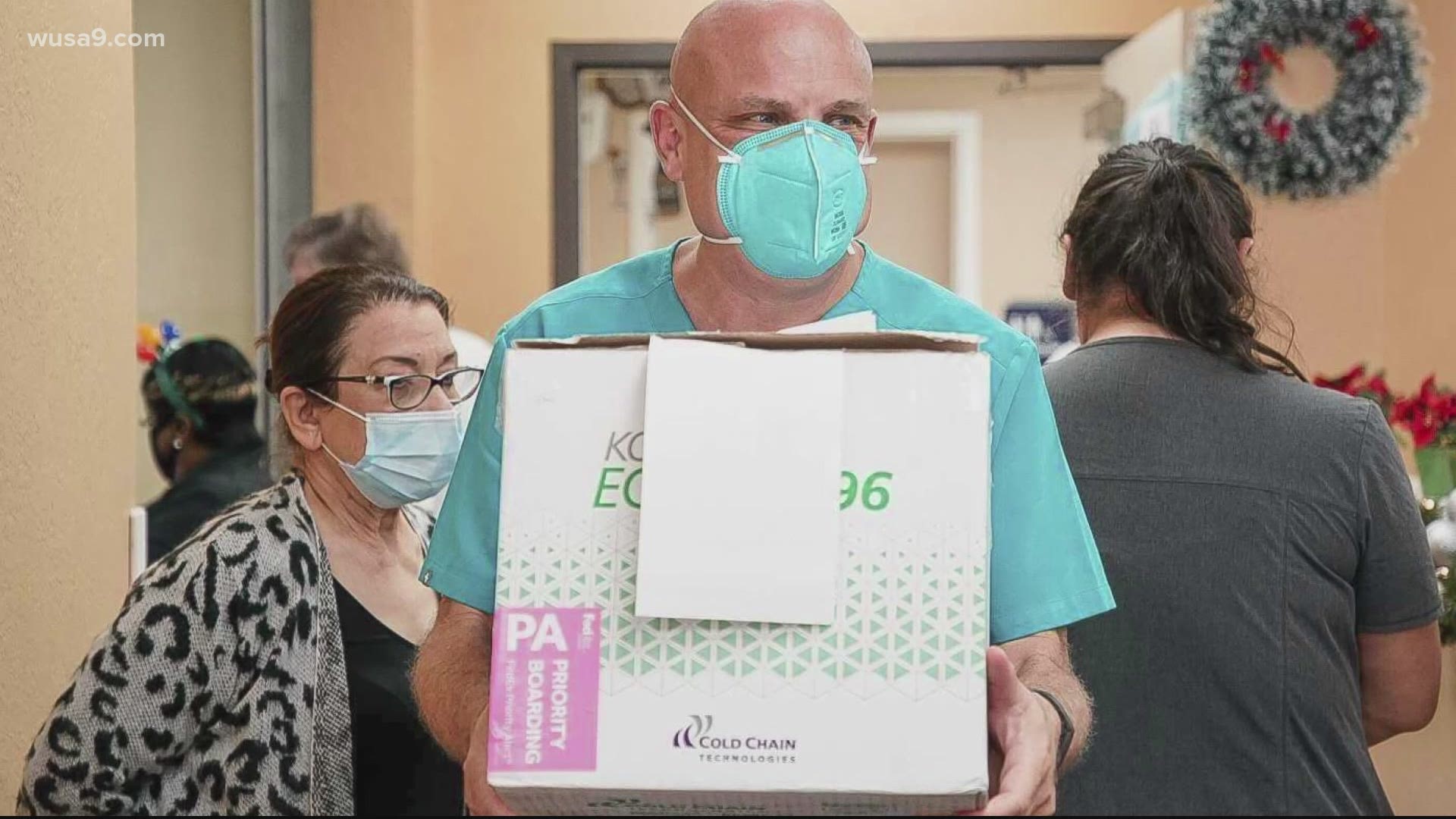WASHINGTON — QUESTION:
Will the current COVID-19 vaccines protect against variant strains of the virus?
ANSWER:
Our experts believe so.
SOURCES:.
Dr. William Moss- professor in the Departments of Epidemiology, International Health and Molecular Microbiology and Immunology at Johns Hopkins Bloomberg School of Public Health
Dr. Linda Nabha- infectious diseases specialist
Moderna, Inc. statement
Pfizer, Inc. statement
PROCESS:
In mid-December the COVID-19 vaccine was mobilized to hospitals and long-term health care facilities across the country.
At the same time, reports of variants of the virus began emerging globally, like the new variant that emerged in November the England.
So we’re Verifying: will the vaccines we currently have work against new variants of COVID-19?
Our Verify sources are infectious diseaseS specialist Dr. Linda Nabha, vaccine expert Dr. William Moss and companies Moderna and Pfizer.
Dr. Moss says whether or not a mutation of the virus can evade the vaccines largely comes down to the spike protein, the spike that juts out from the virus particle.
The SARS-CoV-2 virus has spike proteins, which have something called receptor binding domains. Those receptors connect to receptors on your cells like a lock and key, Moss explained.
Once connected, the virus can enter the cell and replicate itself to create more virus.
The body's way to stop the virus from connecting, entering and replicating, is through antibodies.
"Much of the immune response, what we call 'neutralizing antibodies,' are these antibodies that our immune system produces in response to the vaccine or natural infection, and then those bind to the spike protein on the surface of the virus and basically blocking it from binding to the receptors on our cell," Moss said.
Moss says there would have to be substantial changes to that spike protein for the vaccines to be less effective. Dr. Nabha agrees.
"The vaccine is essentially giving us the genetic code against the M spike protein, right? So essentially the virus has got to change specifically, majorly change that particular part...," Nabha said. "So you have to have a lot of those mutations for that to actually occur."
Both companies confirmed with the Verify team, that their vaccine should be able to handle small mutations.
In a statement Moderna said it continues to test the vaccine against mutations.
"The Moderna COVID-19 Vaccine expresses the full-length Spike protein of the SARS-COV-2 virus, allowing for the generation of neutralizing antibody responses to multiple domains of the protein," the statement reads in part."The full-length Spike protein is 1,273 amino acids long, so while recent variants involve multiple mutations, for instance up to 8 amino acid changes in the spike protein of the B1.1.7 strain, these represent less than a 1% difference from the spike protein encoded by Moderna’s vaccine."
They say that they will continue to test the vaccine against variants of the virus, such as the one found in the United Kingdom.
"We continue to test the Moderna COVID-19 Vaccine against new SARS-CoV-2 variants, and our expectation is that the vaccine’s effectiveness will hold against them as well," the statement reads.
Likewise Pfizer said in a statement, “To date, we have found consistent coverage of all the strains tested,” and it’s now testing against the new strain in the UK.
So we can Verify, right now our experts say, unless the virus mutates substantially, the current vaccines should protect against variants.


